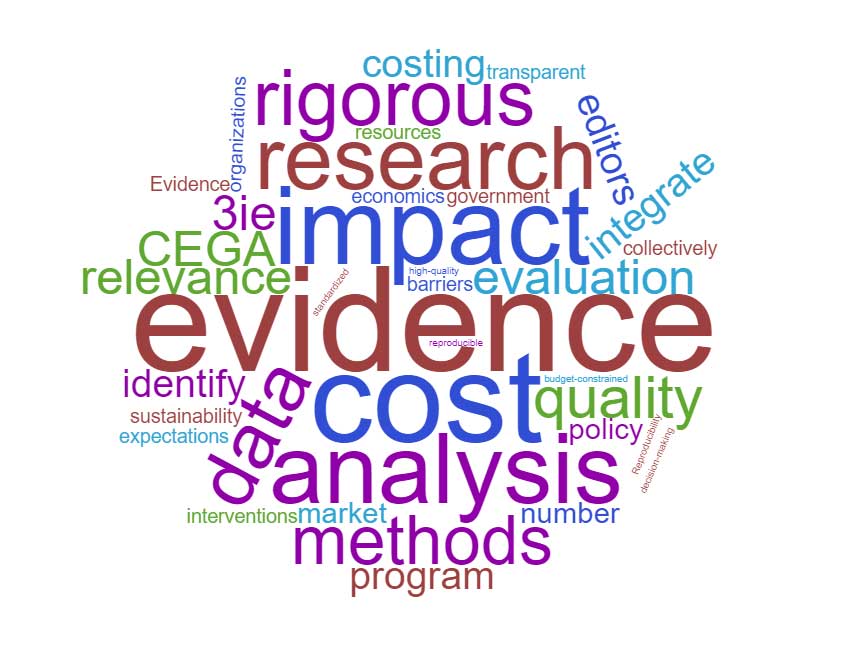
This was through a three-weeks capacity building training organised under the Impact Evaluation for Evidence Based Decisions (IEED) project, a collaborative effort amongst academics and researchers affiliated to the Schools of Public Health and Statistics and Planning within Makerere University and policy makers in the sectors of health, education and agriculture with an overall goal of strengthening the use of impact evaluation in policy decisions and program implementation.
The training was conducted by International Initiative for Impact Evaluation (3ie), as well as the Center for Effective Global Action (CEGA) at the University of California Berkeley as part of the partnership.
Dr. Rhoda Wanyenze, a Professor and Dean, Makerere University School of Public Health said the School is looking forward to learning from 3ie and expanding this partnership beyond the training to the actual evaluations on the ground in Uganda and the region.
“On behalf of the School of Public Health, I would love to welcome you all and to appreciate our partners. Thank you for working hard and letting us to this point when we can begin the course and I appreciate our deputy Vice Chancellor in charge of academic affairs, Prof. Umar Kakumba who is online for joining us to welcome you all to this training so that we can hear the voice of Makerere as we start,” said Dr. Wanyenze.
The training had participants from Makerere University across various schools, and other participants from the Office of the Prime Minister, Ministry of Health, Ministry of Education and Sports, Ministry of Agriculture, Animal Industry and Fisheries.
“We are hopeful that this will start us off in terms of doing joint work to evaluate the programmes in the ministries that are participating today and, in the future, perhaps more so that we can add value in terms of using evidence to expand our programmes in Uganda,” Prof. Rhoda said.
Professor Umar Kakumba, the first Deputy Vice Chancellor (Academic Affairs) at Makerere University lauded the projects for kick-starting off the inaugural training, capacity building for our governmental institutions.
He said Makerere University was fully behind this initiative. He told participants that Makerere University had just passed its new strategic plan 2020-2030 that is striving to foster Makerere University as not only a research led institution but also as an institution that can integrate much more of its knowledge that is created to reach the communities
“We are looking forward through research and innovations that can be impactful to the community but also enhancing that strategic partnership role within not only governmental institutions within the country but also regionally and internationally. So, we are looking at this impact evaluation program and project where we are to strengthen the use of impact evaluation for evidence to provide evidence that can guide the policy decision but also huge investments,” Professor Kakumba said.
Governments across the continent and Uganda in particular are making huge investments in infrastructure, education, health and the whole spectrum of social services and service delivery. But a lot is being lost because countries such as Uganda are not able to really estimate and be able to value the currency and the dividends that emerge out of all the endeavors and a lot is lost along the way.
Professor Kakumba noted that Uganda still lacks capacity and caliber of people who are qualified to do impact evaluation.
“So, my simple message here is basically to laud this initiative, to laud the effort to appreciate the coordination role that is played by the team that was led by Prof. Wanyenze, the colleagues from the School of Statistics and colleagues from other academic units in Makerere University but also partnering with the OPM and other government ministries and also working together with our partners from the US,” he added.

He said such trainings and capacity building is such a great opportunity that energizes Makerere University to continue its relevance to the university stakeholders, in playing its fundamental role in capacitating other governmental and non- governmental organisations that are investing so much in national growth and developmental programs through the impact evaluation.
The IEED project is funded by The William and Flora Hewlett Foundation with the main goal of improving country-level policy processes and systems that make evidence use integral to policy formulation, implementation, and monitoring, contributing to evidence-informed improvements in specific government policies and programs that have potential for wider influence and fortifying the emerging field of evidence-informed policymaking.
Professor Kakumba, who is also the IEED project chairperson Advisory Board hailed the funders for their trust and generosity to support such initiatives aimed at providing skills to Ugandans.
“I want to thank you so much for the commitment, our funders that are supporting this project and we should be able to look at this project aggressively as a Center of Excellence. Probably at the regional level that should be fostering initiatives for impact evaluation and evidence-based policy decisions,” advised Professor Kakumba.
From the School of Public Health, Prof. Rhoda Wanyenze is the team lead of the project alongside Dr. Fredrick Makumbi, and Dr. Ronald Mulebeke as Co- Investigators. Dr. Mulebeke is also the Project Coordinator while at School of Statistics, Dr. Kizito Omala is a Co - Lead alongside Dr. John Bosco Asiimwe and Ms Annette Adong as Co- Investigators.
Meanwhile, all the 37 participants are to receive certificates for upon completion of their course.
It is hoped that the two-year project running from October 1st 2020 to October 31st 2022 will have improved capacity of academics and researchers to design, implement, interpret impact evaluations; improved coordination and collaboration among Impact Evaluation academics and researchers within Makerere University with a vibrant community of practice, and linkages with regional Impact Evaluation networks; incorporation of Impact Evaluation into the curriculum at Makerere University; implementation of two flagship Impact Evaluation projects for capacity building and to showcase the capabilities of the Makerere University Impact Evaluation capabilities.

